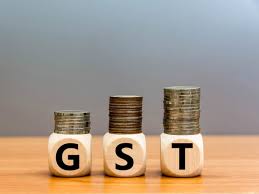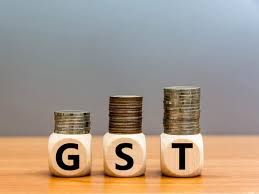In recent months, businesses in India have found themselves in the crosshairs of an increasingly proactive Goods and Services Tax (GST) enforcement system. With a growing number of notices and summons being dispatched by both central and state GST authorities, it is essential for businesses to understand the reasons behind this heightened scrutiny and the impact it may have on their operations. In this SEO article, we will delve into the key factors driving this surge in notices and the challenges businesses face. We will also explore practical strategies for effectively managing these developments.
Table of Contents
1. Introduction
2. The Surge in Notices and Summons
- 2.1 Jurisdictional Confusion
- 2.2 GST Implementation Phase
- 2.3 Scope Expansion
3. Challenges Faced by Businesses
- 3.1 Lack of Uniformity
- 3.2 VAT vs. GST Transition
- 3.3 Sector-Specific Notices
4. Impact on Multinational Companies and Expatriates
5. How Businesses Should Respond
- 5.1 Prioritize Compliance
- 5.2 Legal Expertise
- 5.3 Effective Communication
- 5.4 Regular Review and Adaptation
6. Conclusion
1. The Surge in Notices and Summons
The sudden influx of notices and summons from GST authorities can be attributed to various factors, including:
-
Jurisdictional Confusion: One common trigger for these notices is jurisdictional ambiguity. Some businesses may have registered in one state while operating predominantly in another, leading to disputes between state and central GST authorities.
-
GST Implementation Phase: Many of the notices relate to the early stages of GST implementation when the tax system was riddled with teething problems and policy adjustments. This has resulted in widespread confusion regarding tax liabilities.
-
Scope Expansion: Initially, these notices were sector-specific, but they have now expanded to cover a wide range of issues, including underpayment of tax, incorrect input tax credit claims, and discrepancies in reconciling returns with financial records.
2. Challenges Faced by Businesses
Businesses are grappling with various challenges in the face of this onslaught of notices:
-
Lack of Uniformity: The lack of uniform processes and coordination between state and central authorities has created confusion. In some cases, both state and central authorities have issued notices to the same company, adding to the complexity of compliance.
-
VAT vs. GST Transition: Some tax officials previously dealt with the Value-Added Tax (VAT) system and may lack the expertise needed to transition smoothly to the GST regime, particularly concerning service tax matters.
-
Sector-Specific Notices: Notices now encompass a wide range of sector-specific issues, including the taxation of online gaming and intra-company supplies without consideration.

3. Impact on Multinational Companies and Expatriates
Multinational companies face a unique set of challenges, primarily in relation to expatriates and seconded employees. This is due to a Supreme Court ruling that has tax implications for these arrangements. However, responses to these cases can vary widely, adding a layer of complexity.
4. How Businesses Should Respond
In light of the evolving situation, businesses should adopt certain best practices to manage the impact of these notices:
-
Prioritize Compliance: Ensure your business is fully compliant with GST regulations. Maintain accurate records of all financial transactions and returns filed.
-
Legal Expertise: Seek professional legal advice to understand the nature of the notices and respond effectively. The complexities of the GST system make this advice indispensable.
-
Effective Communication: Maintain transparent and open communication with tax authorities. Ensure your responses are well-documented and supported by concrete evidence.
-
Regular Review and Adaptation: Regularly review your GST-related practices and adapt to changes in tax regulations. A proactive approach can help minimize future issues.
(FAQS)
1. Why are businesses in India receiving an increasing number of notices and summons from GST departments?
- Businesses are receiving more notices and summons due to factors such as jurisdictional confusion, issues related to the initial implementation of GST, and the expansion of the scope of these notices to cover various taxation matters.
2. What is causing jurisdictional confusion in GST notices?
- Jurisdictional confusion arises when a business registers in one state but conducts its primary operations in another state, leading to disputes between state and central GST authorities.
3. How has the implementation phase of GST contributed to the surge in notices?
- During the initial implementation phase of GST, there were teething problems and frequent policy adjustments. This has led to uncertainty and disputes regarding tax liabilities, resulting in an increase in notices.
4. Why is a lack of uniformity and coordination between state and central authorities a concern for businesses?
- The lack of uniform processes and coordination between state and central authorities has created confusion and complexity for businesses. In some cases, both state and central authorities issue notices to the same company, making compliance challenging.
5. What challenges do businesses face when tax officials transition from VAT to GST?
- Some tax officials who previously worked with Value-Added Tax (VAT) may lack expertise in transitioning to the GST regime, particularly when it comes to service tax matters. This can lead to misunderstandings and disputes.
6. What types of issues are covered by sector-specific notices from GST departments?
- Sector-specific notices can cover a wide range of issues, including underpayment of tax, incorrect input tax credit claims, and discrepancies in reconciling returns with financial records.
7. How are multinational companies and expatriates affected by the GST notices and summons?
- Multinational companies are affected by the notices, especially in relation to expatriates and seconded employees. This is due to a Supreme Court ruling that has tax implications for such arrangements. Responses to these cases can vary.
8. What should businesses do to respond effectively to GST notices and summons?
- Businesses should prioritize compliance with GST regulations, seek legal expertise to understand the notices, maintain transparent and open communication with tax authorities, and regularly review their GST-related practices to adapt to changing tax regulations.
9. How can businesses safeguard their financial interests in the face of increased scrutiny from GST departments?
- By staying informed, proactively complying with tax regulations, and effectively managing communications with tax authorities, businesses can navigate the complexities of the GST regime and safeguard their financial interests.
10. What is the key takeaway for businesses dealing with the surge in GST notices and summons?
- The key takeaway is that businesses should be well-prepared to handle the challenges posed by the increased scrutiny. Understanding the reasons behind the notices and implementing best practices for compliance and communication are essential for successful management in this evolving landscape.
Conclusion:
With the GST departments ramping up their efforts to enforce tax compliance, it is crucial for businesses in India to be prepared to handle the increased scrutiny. By comprehending the reasons behind the surge in notices and adopting best practices for compliance and communication, companies can navigate the intricacies of the GST regime and safeguard their financial interests. Staying well-informed and proactive is the key to successfully managing this evolving landscape.


